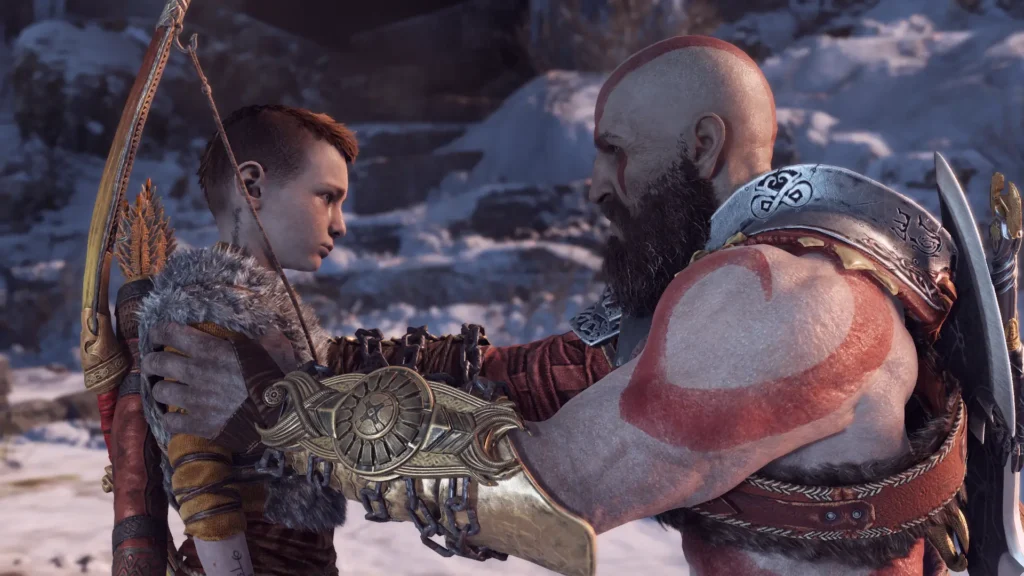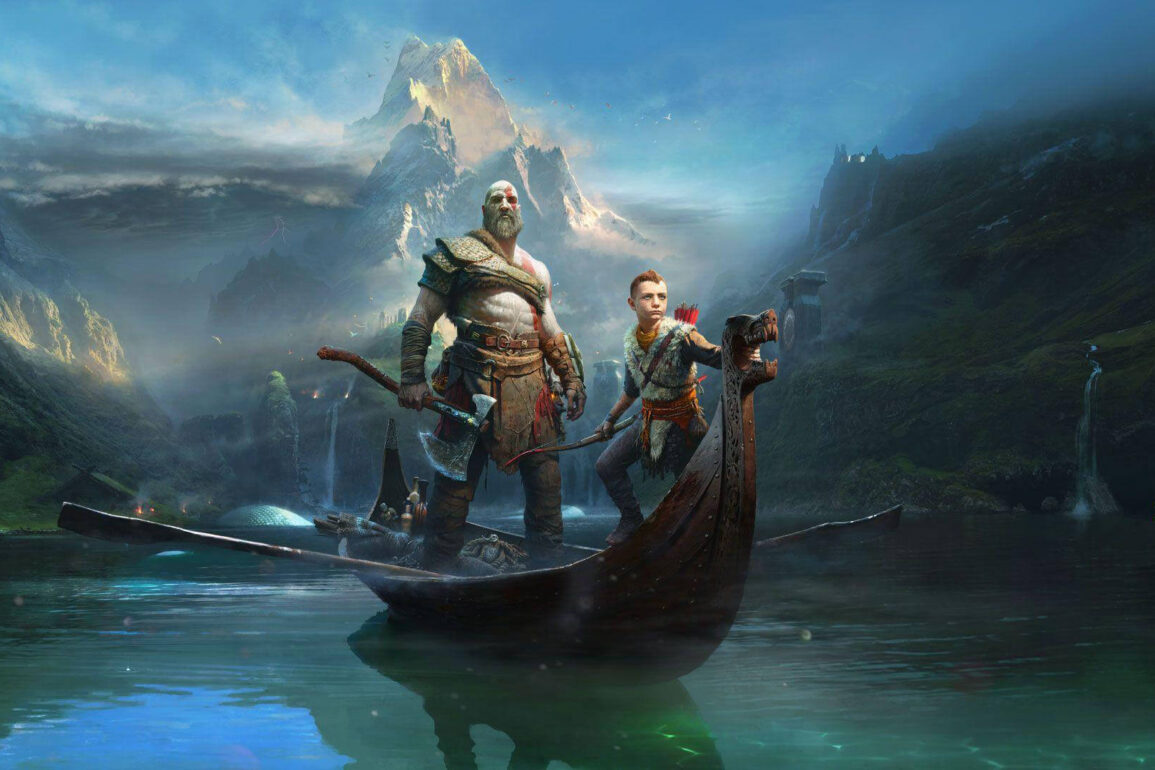
Video games have evolved into a medium capable of delivering powerful storytelling experiences, and a few games exemplify this as well as God of War. Released in 2018, the game took the industry by storm with its gripping narrative, complex characters, and cinematic presentation. In this article, we will delve into the storytelling of God of War, analyzing its narrative techniques, character development, and emotional depth, all of which contribute to its status as a cinematic masterpiece.
1. A Father and Son’s Journey
At the heart of God of War is the deeply personal story of Kratos and his son, Atreus. The game takes players on a journey through the realms of Norse mythology, but it is the bond between father and son that forms the emotional core of the narrative. The game explores their evolving relationship, as they navigate the challenges of their quest and confront their own personal demons. The storytelling is nuanced, highlighting the complexities of their dynamic and immersing players in their emotional journey.
2. Immersive World-Building
God of War presents players with a richly detailed and immersive world inspired by Norse mythology. From the breathtaking landscapes to the intricate lore, every aspect of the game’s world-building contributes to the storytelling. Players encounter iconic gods, mythical creatures, and ancient tales, all woven seamlessly into the narrative. The game’s attention to detail and authenticity create a sense of immersion that enhances the storytelling experience.
3. Epic Scale and Emotional Depth
God of War successfully balances epic, larger-than-life moments with intimate character-driven storytelling. The game delivers grand set pieces and awe-inspiring battles, but it also explores the emotional struggles, vulnerabilities, and growth of its characters. The narrative tackles themes of loss, grief, redemption, and the complexities of parenthood, inviting players to empathize with the characters on a deeply emotional level. This balance between the epic and the personal creates a layered and engaging storytelling experience.
4. Dynamic and Multidimensional Characters
God of War presents a cast of multidimensional characters that defy stereotypes and evolve throughout the narrative. Kratos, in particular, undergoes a transformation from the brutal Spartan warrior of the past to a conflicted and compassionate father figure. Atreus, too, grows from curious and inexperienced youth to a capable and self-aware individual. The supporting characters, such as Mimir and Freya, add depth and complexity to the narrative, enriching the overall storytelling experience.
5. Narrative Pacing and Unforgettable Moments
The pacing of God of War‘s storytelling is carefully crafted to keep players engaged and invested in the narrative. The game expertly balances moments of quiet introspection with thrilling action sequences and shocking plot twists. From the opening moments to the climactic finale, the narrative unfolds in a way that keeps players on the edge of their seats, eagerly anticipating the next revelation or emotional beat.
Conclusion
God of War stands as a testament to the power of storytelling in video games. Its cinematic presentation, compelling characters, and emotionally charged narrative create an immersive experience that resonates with players long after the credits roll. The game’s ability to balance epic action with intimate storytelling, coupled with its meticulous world-building and character development, solidify its status as a cinematic masterpiece. As the gaming industry continues to evolve, God of War serves as a shining example of how storytelling in games can reach new heights, captivating players and leaving a lasting impact on their hearts and minds.

